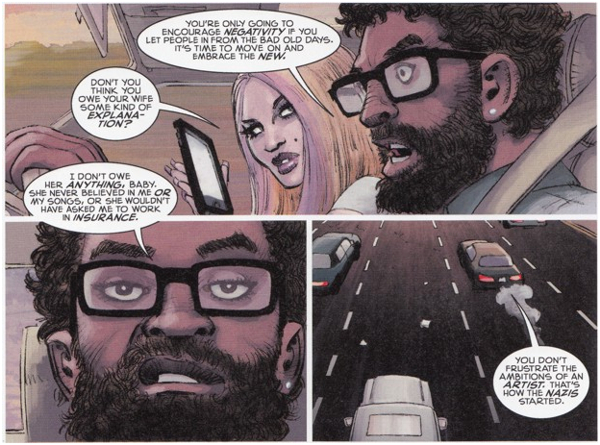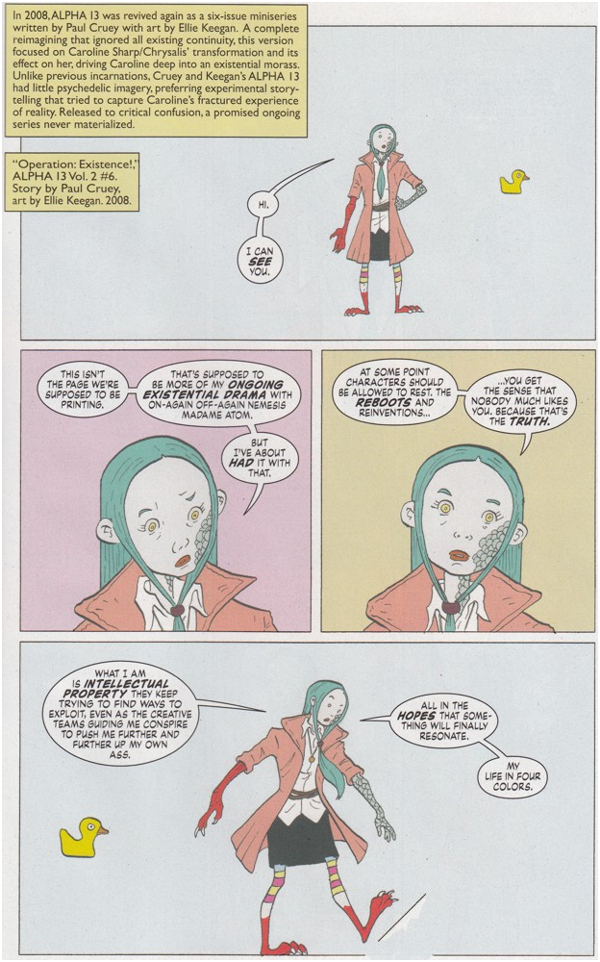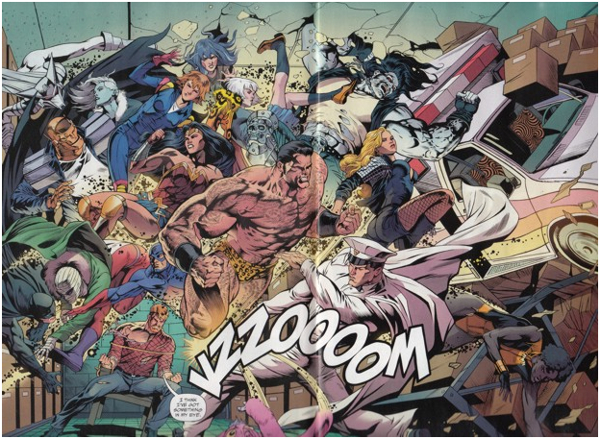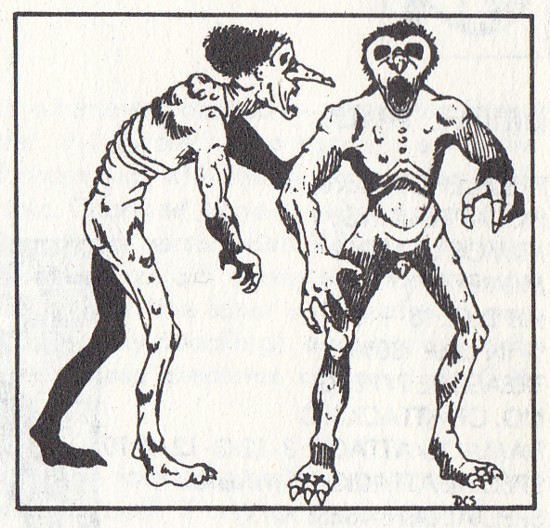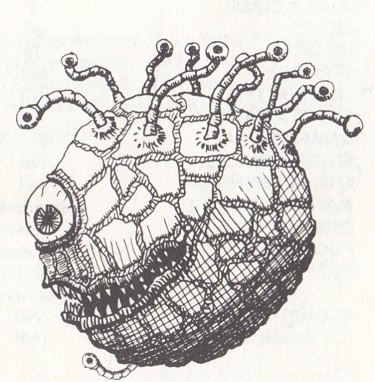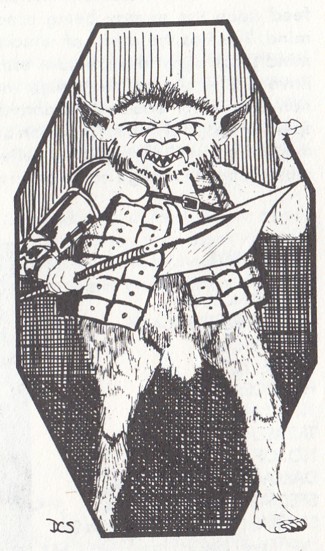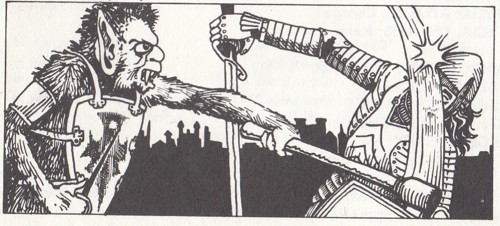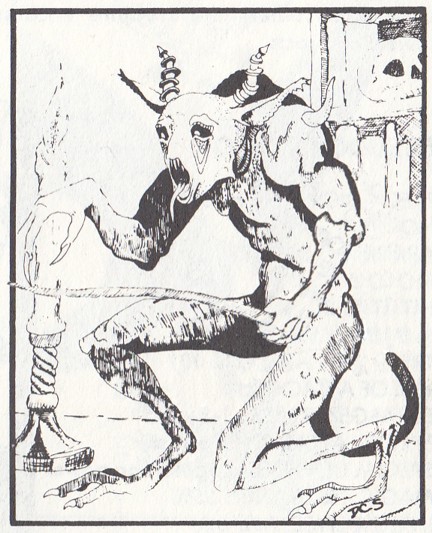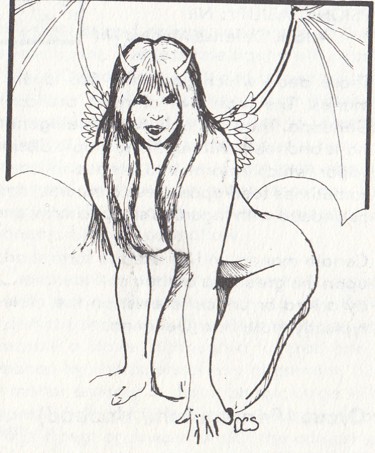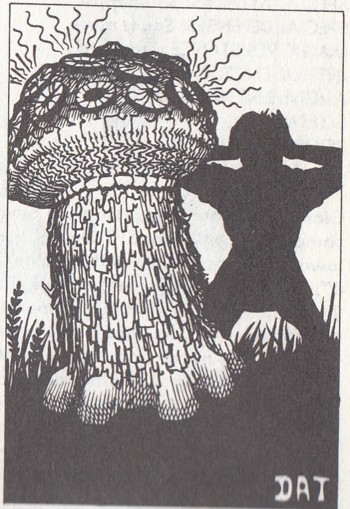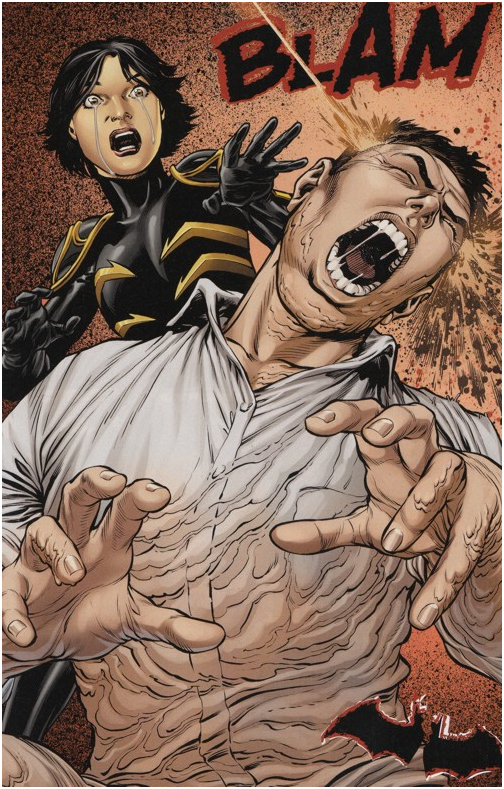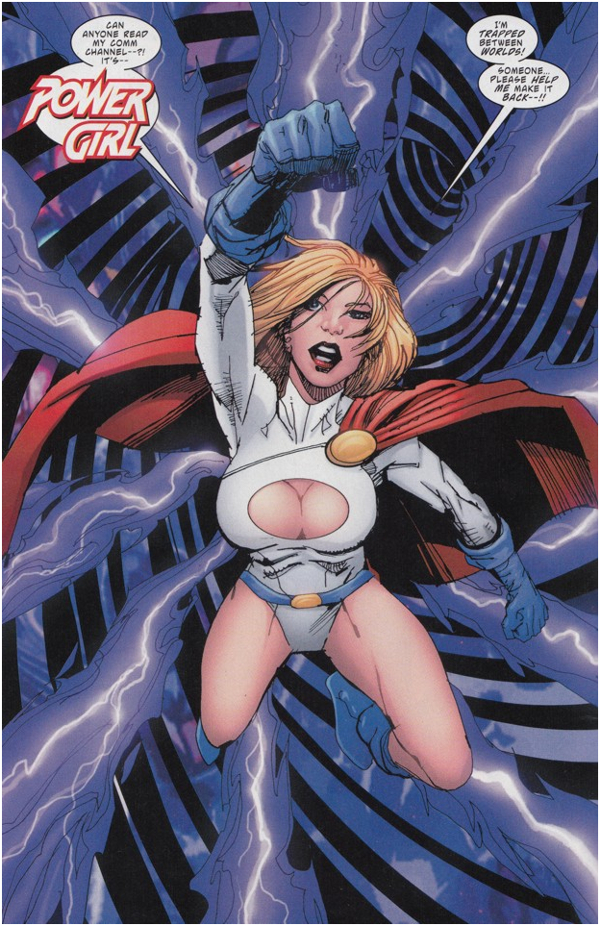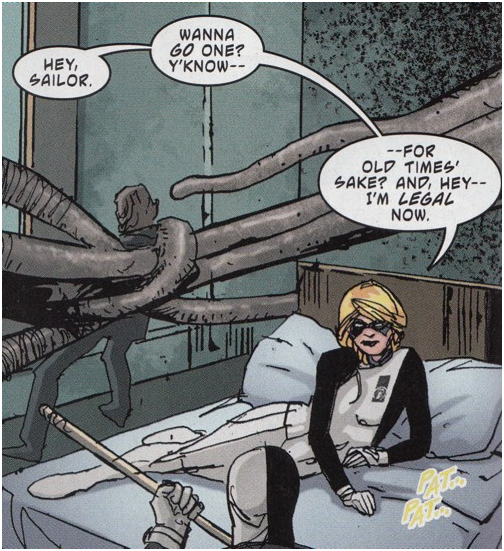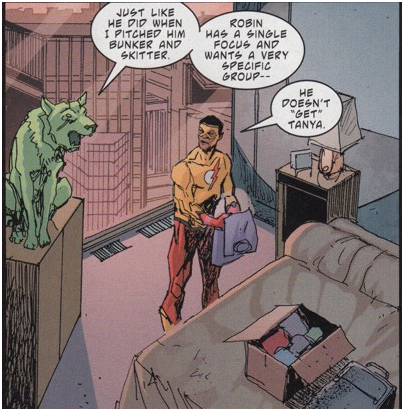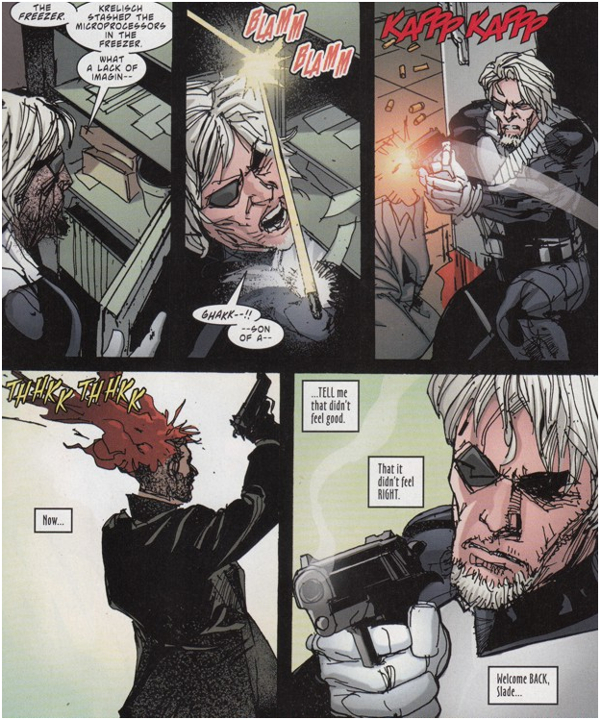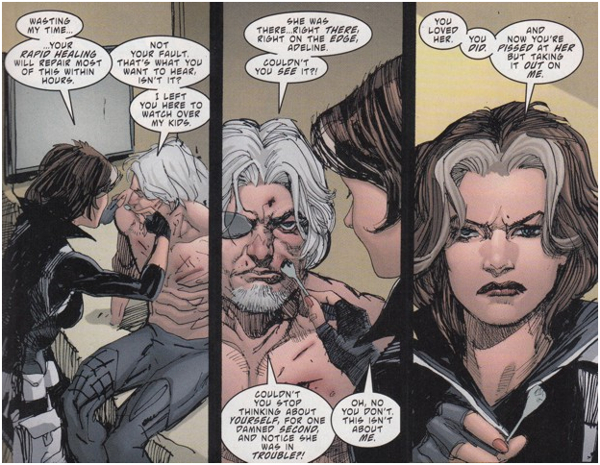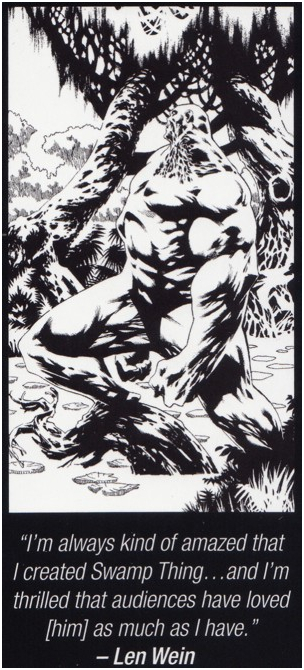E!TACT! #13
Special Anniversary Issue!
By Grunion Guy
Special Anniversary Issue!
This is my 13th newsletter! That's the quarter year anniversary! To celebrate this amazing achievement, this issue will be chock-full of hilarious Internet lists (minus the advertisements between each entry in the list! Lucky you!). Lists can be controversial so I apologize in advance if some of my opinions make you angry. You can always send me a letter calling me a cunt! I love hearing from you!
Top 10 Issues of Dragon Magazine!
10. #165. Notable highlights: Undersea Priests: Can a merman cleric cast a flame strike? No — but he can do better; Square Pegs in Round Holes: An SF Module for a fantasy campaign using Wild West characters?; and The Role of Computers: Why your PC/MS-DOS game crashes, and how to run a railroad and not go broke.
9: #83. Notable highlights: The Dancing Hut: A no-holds-barred challenge for high-level AD&D characters; The Ecology of the Stirge: It's a bird . . . it's a bug . . . ; and The Many Facets of Gems: Fact and folklore about snazzy stones.
8: #249. Notable highlights: Below the Tomb of Horrors: New terrors to add to the classic AD&D module or any cryptic dungeon in your campaign; Dungeon Mastery: Learn the vocabulary of the Underdark in "Deep Meanings"; and Sixguns and Sesheyans: Back to the future with Alternity game rules for Old West firearms, plus guidelines for creating your own Weird West campaign.
7: #145. Notable highlights: Bazaar of the Bizarre: Call on a deva or 200 berserk quaggoths — all in the defense of your home; Strongholds Three: Why elven castles look like hills, and other details on fantasy forts; and Your Home is Your Castle: Castles are hard enough to attack, but have you ever tried living in one?
6: #282. Notable highlights: The Outgoing Goblin's Guide to Gaming Etiquette; D&D Personal Ads; and Meanwhile, Back in the Slime-pits of Karvan: Making Cutaway GMing Cut Your Way.
5: #375. Notable highlights: Demonomicon of Iggwilv: Demogorgon: The Prince of Demons: Double your terror, double your fun; Defiled Monsters: Nature takes revenge against the crimes of civilization; and Volo's Guide: Ashemmi and Sememmon: the Zhentarim's star-crossed lovers.
4: #78. Notable highlights: Citadel by the Sea: Contest-winning AD&D module; Be Thy Die Ill-wrought: How to tell if it's really random; and The Ecology of the Mind Flayer: An illithid does no one any good.
3: #285. Notable highlights: How to Fight Pixies Without Getting Pantsed; Mighty Halfling Wizards . . . Seriously!; and a free poster map of the Town of Hommlet!
2: #179. Notable highlights: Magic by Candlelight: After you light one of these magical candles, be sure you stand way back; Seven Enlightening Lanterns: If you explore the dungeons of the Forgotten Realms, be sure to have one of these devices in hand; and Moonlight: Pure, distilled moonlight, silvery and bright — just the target for two smart thieves.
1: #129. Notable highlights: Demi-humans: Pointed ears aren't the only things that make them different; Give Demi-humans an Even Break!: If elves are so smart, why can't they roll more dice for intelligence?; and The Role of Books: Would you let a wargamer be your lawyer?
I'm sure some of you have already punched a hole in your wall enraged that I only gave Issue #285 the third spot. I agree that the poster of Hommlet was pretty fantastic but the rest of the issue was a bit too halfling heavy to be useful to real gamers. Who rolls up a halfling character unless you and your friends are planning a joke campaign?
Oh, also? I lied about the advertisements! Here's the first one:
This is my 13th newsletter! That's the quarter year anniversary! To celebrate this amazing achievement, this issue will be chock-full of hilarious Internet lists (minus the advertisements between each entry in the list! Lucky you!). Lists can be controversial so I apologize in advance if some of my opinions make you angry. You can always send me a letter calling me a cunt! I love hearing from you!
Top 10 Issues of Dragon Magazine!
10. #165. Notable highlights: Undersea Priests: Can a merman cleric cast a flame strike? No — but he can do better; Square Pegs in Round Holes: An SF Module for a fantasy campaign using Wild West characters?; and The Role of Computers: Why your PC/MS-DOS game crashes, and how to run a railroad and not go broke.
9: #83. Notable highlights: The Dancing Hut: A no-holds-barred challenge for high-level AD&D characters; The Ecology of the Stirge: It's a bird . . . it's a bug . . . ; and The Many Facets of Gems: Fact and folklore about snazzy stones.
8: #249. Notable highlights: Below the Tomb of Horrors: New terrors to add to the classic AD&D module or any cryptic dungeon in your campaign; Dungeon Mastery: Learn the vocabulary of the Underdark in "Deep Meanings"; and Sixguns and Sesheyans: Back to the future with Alternity game rules for Old West firearms, plus guidelines for creating your own Weird West campaign.
7: #145. Notable highlights: Bazaar of the Bizarre: Call on a deva or 200 berserk quaggoths — all in the defense of your home; Strongholds Three: Why elven castles look like hills, and other details on fantasy forts; and Your Home is Your Castle: Castles are hard enough to attack, but have you ever tried living in one?
6: #282. Notable highlights: The Outgoing Goblin's Guide to Gaming Etiquette; D&D Personal Ads; and Meanwhile, Back in the Slime-pits of Karvan: Making Cutaway GMing Cut Your Way.
5: #375. Notable highlights: Demonomicon of Iggwilv: Demogorgon: The Prince of Demons: Double your terror, double your fun; Defiled Monsters: Nature takes revenge against the crimes of civilization; and Volo's Guide: Ashemmi and Sememmon: the Zhentarim's star-crossed lovers.
4: #78. Notable highlights: Citadel by the Sea: Contest-winning AD&D module; Be Thy Die Ill-wrought: How to tell if it's really random; and The Ecology of the Mind Flayer: An illithid does no one any good.
3: #285. Notable highlights: How to Fight Pixies Without Getting Pantsed; Mighty Halfling Wizards . . . Seriously!; and a free poster map of the Town of Hommlet!
2: #179. Notable highlights: Magic by Candlelight: After you light one of these magical candles, be sure you stand way back; Seven Enlightening Lanterns: If you explore the dungeons of the Forgotten Realms, be sure to have one of these devices in hand; and Moonlight: Pure, distilled moonlight, silvery and bright — just the target for two smart thieves.
1: #129. Notable highlights: Demi-humans: Pointed ears aren't the only things that make them different; Give Demi-humans an Even Break!: If elves are so smart, why can't they roll more dice for intelligence?; and The Role of Books: Would you let a wargamer be your lawyer?
I'm sure some of you have already punched a hole in your wall enraged that I only gave Issue #285 the third spot. I agree that the poster of Hommlet was pretty fantastic but the rest of the issue was a bit too halfling heavy to be useful to real gamers. Who rolls up a halfling character unless you and your friends are planning a joke campaign?
Oh, also? I lied about the advertisements! Here's the first one:
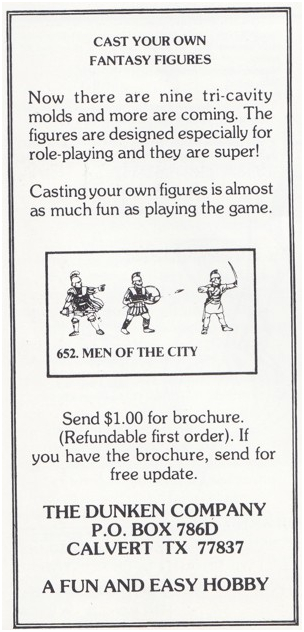
The men of this particular city wear skirts.
I wish I'd sent away for that brochure. Although if they only currently have nine of the molds, why are "Men of the City" tri-cavity mold #652? This advert seems suspicious. I wonder how much money The Dunken Company made on not sending out brochures after receiving the dollar.
Oh. My mistake! They're still a thriving business for the miniature creating enthusiast! They still have the Men of the City mold although it looks like they dropped the archer. I bet too many people complained about his bow breaking. Or maybe the spearman killed him after the officer ordered him to.
Top Five Times I Was Told About a Computer Game!
5: Daniel P. tells me about Colossal Cave Adventure. This would have probably been in 5th grade in 1981 since I was recently enamored with Dungeons & Dragons. He told me about a game he'd played on his dad's computer at work in which he explored an underground cavern where he'd captured a bird that was afraid of a black rod he'd found and was eventually blocked from further progress by a serpent. I had no idea what a text adventure was at the time so my imagination turned it into the perfect computer adaptation of Dungeons & Dragons. I imagined it was leaps and bounds more exciting than the LCD Dungeons and Dragons game or the Dungeons and Dragons Computer Labyrinth Game. Technically, it absolutely was. But not in any way that I'd imagined it would be.
4: My cousin tells me about the Dungeons & Dragons game for Intellivision. Once again, my imagination convinced me I was missing out on the greatest home video game system ever created since they had apparently perfectly replicated the tabletop roleplaying game. It cast such a spell on me that in my thirties, I purchased an Intellivision and the game just to finally see what I was missing. Now I miss the eighty dollars I spent on the used system.
3: Danny F. tells me about Zork. This was in 8th grade computer class and launched my love of Interactive Fiction. He would tell me about problems he was having in the game and I'd brainstorm solutions with him having no real grasp of the parser and how the game worked. This was the class in which I completely plagiarized Danny's project and nobody ever called me on it. He'd left his program on a machine I began using and I saved it to my disk. It was a trivia program so I just changed the questions and a few other mechanics. But it's not like I was savvy enough at the time to think about the many programming signatures of Danny's code that would remain. I didn't steal his work because I was too lazy to write my own program. I was bitter because my project was fucked. Halfway through the year, the school switched from the TRS-80 to the Apple IIe. My program was an animation using the TRS-80's internal "emojis" which you could access with POKE commands. I'm still angry about this.
2: Davide B. tells me about Wizardry. I can still recall where I was standing in the Satanic Haman Elementary school playground (just on the edge of the asphalt near the sacrificial altar) when Davide began describing the new computer game he had just purchased. He described creating a party of six characters and how you explored a three dimensional dungeon. He mentioned how he had found a sign that said the corridor was off limits and there was only darkness beyond. He mentioned battling monsters and finding various treasures to better equip his characters. For once, my imagination didn't need to make the game any better. It even sounded too good to be true.
Of course it wasn't. When I finally finagled an invite to his house to play, I fell in love. Wizardry was nearly perfect. To this day, I have a difficult time coming up with a better computer roleplaying game. You could play it safe and simply kill kobolds and bubbly slimes on the first level. Or you could, rather quickly, find ways deeper into the dungeon in attempts to find, at much greater risk, better equipment and strange items. Some people probably need more of a story or more reasons to risk their fictional characters' lives. All I needed was the lure of that next chest which might reveal yet another magic item that I'd never before found. Leveling up and searching for treasure were the only excuses I needed to make one more trip to level eight in search of earth giants or will 'o wisps.
Eventually, my Aunt and Uncle purchased an Apple IIe so I could stop inviting myself over to Davide's on a constant basis. Although I could probably, once again, invite myself over because my mother has recently become friends with Davide's mother. Now every time I speak with my mother on the phone, I expect her to interrogate me about that time I fucked Davide over by scrambling some of his Apple IIe disks with a magnet because he accused me of stealing his Sword of Shannarra book (which I had hid to make it look like my new copy was his. I know. I KNOW! I was like twelve or something, okay?! If you can't use youth as an excuse for being a dick, what good is youth?!). Anyway, I've told that story in my blog before. I don't need to apologize for it again. Do I?!
And then eventually eventually, my mother got me an Apple IIe and my life really began!
1: Sen tells me about Ultima Online while on the MUSH TinyTim. Ultima was one of the series I grew up playing. Ultima IV was such a revelation of what computer RPGs could be. A game where there was no boss to battle at the end? A game where you simply tried to become a better person as an exemplar to the world? It was fucking crazy. So when I saw Sen and Logan5 discussing a game on TIM and dropping phrases like Vas Mani and Corp Por, I had to ask, "What Ultima are you discussing?" It was my first time hearing about massively multiplayer online roleplaying games. Her descriptions of the road between Britain and Trinsic being littered with corpses told me I had to buy this game. And it didn't disappoint. At least not until the developers split the world into two halves, one where people could player kill and one pansy-ass pacifist world of spineless cowards.
Before the game was ruined by the split, Sen and I had plans to become vigilantes. We were going to hunt down murderers and make a living from the rewards. This was a bit hard to implement because you had to find the murderers first. We knew where one had a house (since it was between our house and Minoc) and so we set about laying our trap. She was grandmaster in stealth and sneaking while I was a grandmaster in lock picks, disarm traps, and detect hidden. She was a grandmaster with a crossbow and I was a grandmaster with a quarterstaff. We remained hidden outside of his house waiting to ambush him. It would be tough because all murderers had the same boring modus operandi: ride a horse so you were hard to catch and cast Corp Por until the person you were riding circles around died. I was hidden between a copse of trees and a nearby house and Sen waited north of me, hidden with her crossbow ready. When he emerged from his house, she began shooting him and advancing on him. He backed right into me and I began whacking him with my quarterstaff. The advantage to using the quarterstaff was that it not only depleted hit points from the target but mana points as well. In just a few seconds, his offensive capabilities were sapped. You could see his avatar flailing around trying to get away, trapped between me, the houses, the copse of trees, and Sen. He was one or two more hits away from death when he somehow scooted past us and fled. We had failed. But on the plus side, I'd never seen one of those asshole murderers panic like that.
After that, Sen and I came up with a new plan: we'd become burglars! You couldn't pick the lock of somebody's house to get inside but there was an easy way around this. Whenever people left their houses, they rarely shut the door behind them. It would auto-shut after a second or two, so nobody bothered. But Sen could hide just outside the door and then sneak in (while still invisible thanks to being a grandmaster) before it shut. I believe I was the only person in the entire game who had a grandmaster level of detect hidden so Sen wasn't in any danger of being spotted. [In a related note, whenever anybody was hanging out in town messing with inventory, they would use their hide skill to turn invisible. As a grandmaster at detect hidden, I would stroll through the marketplace revealing everybody, even grandmaster hiders, leaving behind a cloud of "What the fuck?"s.] Once she was in, she'd be able to let me in and I would pick the locks of their chests and rob them blind. Our first target was the house of the murderer we'd almost killed. And it worked like a charm!
I mean, it almost did. Sen did get inside. But there was another player in the house, just going about their business. Ultima Online had a command which would allow a person who had a deed to the house reveal any hidden players within their house. As Sen sneaked about the place, this other character, seemingly arbitrarily, uttered the command and revealed Sen. She said he started running about like crazy looking to get her out. He was probably trying to remember the command that could evict players. But before he remembered it, Sen casually pulled a portrait off of their wall and pocketed it. That portrait hung proudly over the mantle in our house for years.
Not long after our first attempt at burglary, Ultima Online made it so players could lock down their valuables inside chests inside their own homes. So they fucked us on being burglars as well. Before they decided it shouldn't be the Old West anymore, Ultima Online was some of the most fun I've ever had online.
Time for another ad, you gullible twats!
Oh. My mistake! They're still a thriving business for the miniature creating enthusiast! They still have the Men of the City mold although it looks like they dropped the archer. I bet too many people complained about his bow breaking. Or maybe the spearman killed him after the officer ordered him to.
Top Five Times I Was Told About a Computer Game!
5: Daniel P. tells me about Colossal Cave Adventure. This would have probably been in 5th grade in 1981 since I was recently enamored with Dungeons & Dragons. He told me about a game he'd played on his dad's computer at work in which he explored an underground cavern where he'd captured a bird that was afraid of a black rod he'd found and was eventually blocked from further progress by a serpent. I had no idea what a text adventure was at the time so my imagination turned it into the perfect computer adaptation of Dungeons & Dragons. I imagined it was leaps and bounds more exciting than the LCD Dungeons and Dragons game or the Dungeons and Dragons Computer Labyrinth Game. Technically, it absolutely was. But not in any way that I'd imagined it would be.
4: My cousin tells me about the Dungeons & Dragons game for Intellivision. Once again, my imagination convinced me I was missing out on the greatest home video game system ever created since they had apparently perfectly replicated the tabletop roleplaying game. It cast such a spell on me that in my thirties, I purchased an Intellivision and the game just to finally see what I was missing. Now I miss the eighty dollars I spent on the used system.
3: Danny F. tells me about Zork. This was in 8th grade computer class and launched my love of Interactive Fiction. He would tell me about problems he was having in the game and I'd brainstorm solutions with him having no real grasp of the parser and how the game worked. This was the class in which I completely plagiarized Danny's project and nobody ever called me on it. He'd left his program on a machine I began using and I saved it to my disk. It was a trivia program so I just changed the questions and a few other mechanics. But it's not like I was savvy enough at the time to think about the many programming signatures of Danny's code that would remain. I didn't steal his work because I was too lazy to write my own program. I was bitter because my project was fucked. Halfway through the year, the school switched from the TRS-80 to the Apple IIe. My program was an animation using the TRS-80's internal "emojis" which you could access with POKE commands. I'm still angry about this.
2: Davide B. tells me about Wizardry. I can still recall where I was standing in the Satanic Haman Elementary school playground (just on the edge of the asphalt near the sacrificial altar) when Davide began describing the new computer game he had just purchased. He described creating a party of six characters and how you explored a three dimensional dungeon. He mentioned how he had found a sign that said the corridor was off limits and there was only darkness beyond. He mentioned battling monsters and finding various treasures to better equip his characters. For once, my imagination didn't need to make the game any better. It even sounded too good to be true.
Of course it wasn't. When I finally finagled an invite to his house to play, I fell in love. Wizardry was nearly perfect. To this day, I have a difficult time coming up with a better computer roleplaying game. You could play it safe and simply kill kobolds and bubbly slimes on the first level. Or you could, rather quickly, find ways deeper into the dungeon in attempts to find, at much greater risk, better equipment and strange items. Some people probably need more of a story or more reasons to risk their fictional characters' lives. All I needed was the lure of that next chest which might reveal yet another magic item that I'd never before found. Leveling up and searching for treasure were the only excuses I needed to make one more trip to level eight in search of earth giants or will 'o wisps.
Eventually, my Aunt and Uncle purchased an Apple IIe so I could stop inviting myself over to Davide's on a constant basis. Although I could probably, once again, invite myself over because my mother has recently become friends with Davide's mother. Now every time I speak with my mother on the phone, I expect her to interrogate me about that time I fucked Davide over by scrambling some of his Apple IIe disks with a magnet because he accused me of stealing his Sword of Shannarra book (which I had hid to make it look like my new copy was his. I know. I KNOW! I was like twelve or something, okay?! If you can't use youth as an excuse for being a dick, what good is youth?!). Anyway, I've told that story in my blog before. I don't need to apologize for it again. Do I?!
And then eventually eventually, my mother got me an Apple IIe and my life really began!
1: Sen tells me about Ultima Online while on the MUSH TinyTim. Ultima was one of the series I grew up playing. Ultima IV was such a revelation of what computer RPGs could be. A game where there was no boss to battle at the end? A game where you simply tried to become a better person as an exemplar to the world? It was fucking crazy. So when I saw Sen and Logan5 discussing a game on TIM and dropping phrases like Vas Mani and Corp Por, I had to ask, "What Ultima are you discussing?" It was my first time hearing about massively multiplayer online roleplaying games. Her descriptions of the road between Britain and Trinsic being littered with corpses told me I had to buy this game. And it didn't disappoint. At least not until the developers split the world into two halves, one where people could player kill and one pansy-ass pacifist world of spineless cowards.
Before the game was ruined by the split, Sen and I had plans to become vigilantes. We were going to hunt down murderers and make a living from the rewards. This was a bit hard to implement because you had to find the murderers first. We knew where one had a house (since it was between our house and Minoc) and so we set about laying our trap. She was grandmaster in stealth and sneaking while I was a grandmaster in lock picks, disarm traps, and detect hidden. She was a grandmaster with a crossbow and I was a grandmaster with a quarterstaff. We remained hidden outside of his house waiting to ambush him. It would be tough because all murderers had the same boring modus operandi: ride a horse so you were hard to catch and cast Corp Por until the person you were riding circles around died. I was hidden between a copse of trees and a nearby house and Sen waited north of me, hidden with her crossbow ready. When he emerged from his house, she began shooting him and advancing on him. He backed right into me and I began whacking him with my quarterstaff. The advantage to using the quarterstaff was that it not only depleted hit points from the target but mana points as well. In just a few seconds, his offensive capabilities were sapped. You could see his avatar flailing around trying to get away, trapped between me, the houses, the copse of trees, and Sen. He was one or two more hits away from death when he somehow scooted past us and fled. We had failed. But on the plus side, I'd never seen one of those asshole murderers panic like that.
After that, Sen and I came up with a new plan: we'd become burglars! You couldn't pick the lock of somebody's house to get inside but there was an easy way around this. Whenever people left their houses, they rarely shut the door behind them. It would auto-shut after a second or two, so nobody bothered. But Sen could hide just outside the door and then sneak in (while still invisible thanks to being a grandmaster) before it shut. I believe I was the only person in the entire game who had a grandmaster level of detect hidden so Sen wasn't in any danger of being spotted. [In a related note, whenever anybody was hanging out in town messing with inventory, they would use their hide skill to turn invisible. As a grandmaster at detect hidden, I would stroll through the marketplace revealing everybody, even grandmaster hiders, leaving behind a cloud of "What the fuck?"s.] Once she was in, she'd be able to let me in and I would pick the locks of their chests and rob them blind. Our first target was the house of the murderer we'd almost killed. And it worked like a charm!
I mean, it almost did. Sen did get inside. But there was another player in the house, just going about their business. Ultima Online had a command which would allow a person who had a deed to the house reveal any hidden players within their house. As Sen sneaked about the place, this other character, seemingly arbitrarily, uttered the command and revealed Sen. She said he started running about like crazy looking to get her out. He was probably trying to remember the command that could evict players. But before he remembered it, Sen casually pulled a portrait off of their wall and pocketed it. That portrait hung proudly over the mantle in our house for years.
Not long after our first attempt at burglary, Ultima Online made it so players could lock down their valuables inside chests inside their own homes. So they fucked us on being burglars as well. Before they decided it shouldn't be the Old West anymore, Ultima Online was some of the most fun I've ever had online.
Time for another ad, you gullible twats!
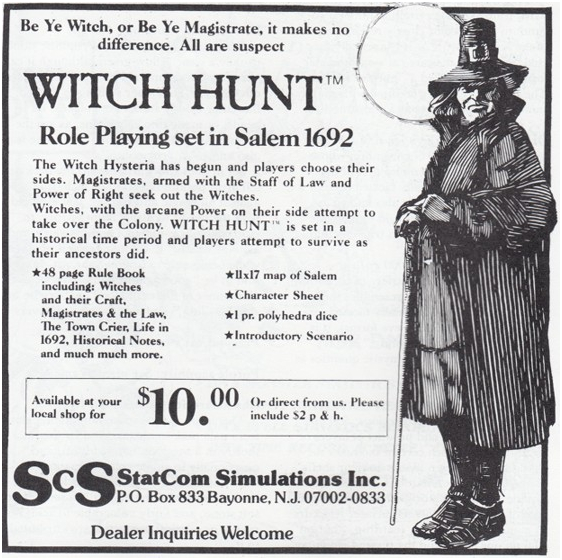
Instead of Magistrates and Witches, shouldn't the two sides be Magistrates and the young women they were fucking who were threatening to expose their hypocrisy?
Top Five Quiet Riot Albums!
5: QR (also known as QR IV). I remembered really liking this album but I discovered recently that it is terrible and my younger self was a douche. Recently I gave it another go after digging out my old tape cassettes to play in my work van. I tried to listen to this but it was bad. Maybe because it was missing Kevin DuBrow on vocals and songwriting. Or maybe I didn't give it a real chance. I also listened to Whitesnake's second album and I couldn't remember any of the songs on that album. I probably only listened to it once thirty years ago. Why did I even own it?! It's practically blues rock. Gross!
4: Probably every album after QR. I haven't heard any of Quiet Riot's albums released after QR but I can't imagine they're worse than that piece of garbage. Although maybe I should give QR another chance? I would if I hadn't angrily snapped the cassette in half and threw it out the window going down I-5 after which I got off at the next exit so I could come back around and run it over.
3: Metal Health. This is probably the biggest controversial list placement of all lists in history but I'm not doing it just to shock my readers! Well, maybe a little bit. I mean, it's got Bang Your Head on it and who doesn't know Bang Your Head since it was made famous by Weird Al in one of his polkas? Also it was just pretty popular on its own (which is why it probably made the polka, now that I've reasoned it all out). If this list considered the videos, I'd probably move this up a notch or two. How iconic is the Metal Health video where Kevin DuBrow points at his ass when he sings, "Feel the crack"? I also appreciated how the video for Cum on Feel the Noize was a direct sequel to Metal Health. But since it was a Slade cover, I have to deduct points.
2: Condition Critical. The hit single on this album was Mama Weer All Crazee Now which only proved that Kevin DuBrow had issues with spelling. It makes me think it's possible he thought the previous album was meant to be called Mental Health and accidentally made it cooler by misspelling it. I believe it's this album that sets the stage for what makes the top album for me. Winners Take All was probably thought of as a ballad but its actually an anthem for the youth. It's inspiring and shows that the band was less about trying to appeal to youth angst and rebellion and more about proclaiming the strength and hopefulness in the young. Maybe that's why this album wasn't very popular. All the youths were all, "No, Kevin. You're wrong about us. We are actually lazy and uneducated and apathetic."
1: QR III. This album may not have been as popular or as profitable as Quiet Riot's previous two albums but I find it the only one I can listen to all the way through without my finger twitching to hit the fast forward button. The Wild and the Young was the first single from this album. You might remember the video of a dystopian future where Wink Martindale declared there would be no more rock and roll and Chuck Woolery wound up being a conservative shitheel. Anyway, I loved this song when I was younger but never realized just how uplifting it is until many years later. I could quote practically the whole song as examples of how this song didn't just raise a middle finger to older generations but fully embraced the youth and their choices. "Burning passion with no guilt or shame. It's accepted education. Misbehaving, no regrets, no blame. With a bold kind of sophistication." They're not singing about rebellion from the status quo. It's a simple acceptance (and even admiration) of youth culture: "Into fashion, their [they're? I don't think it matters.] computer games. Modern day communication." And the pre-choruses can make me tear up just thinking about them (after which the younger version of me would totally call me gay): "They are the strong. They'll survive" and "They are not wrong. They're alive." It's an odd rock song that doesn't think of itself as helping lead the youth rebellion but simply offers a thumbs up and a bit too sexual pat on the ass to the kids. And it's not the only one on the album. Half the album is like an inspirational quote a day calendar for the youth. The other half is about fucking. It's the fucking half that puts this at the number one spot.
Top 10 Songs That Randomly Came Up On My Shuffle After Playing 10 Songs (in the order they came up)!
10: All is Full of Love (Plaid Mix) by Björk. I can't quite remember what the other mix on this song's single is but I think the Plaid Mix is my favorite.
9: Anthem by Rush. You might think, after seeing these two songs, that I forgot to hit shuffle and that I'm playing my limited library straight through. But you'd be wrong because remember how I said there were other versions of All is Full of Love? Those would be nine and eight if that were true, smarty pants!
You have to appreciate the balls on Rush to write an anthem and just call it Anthem so that their listeners won't mistake it for a ballad. I'm just going to assume it's an anthem to Ayn Rand and her book Anthem since they talk about how we've always been told selfishness is wrong and then they're all, "Bullshit! Get yours, dickfaces! Anthem! Anthem! Anthem!"
8: Public Enemy Service Announcement #1 by Chuck D and Flava Flav. This isn't really a song but it came up third (which makes it #8 on the list due to science) so I guess I had to list it. Chuck D says some sensibly lyrical things about keeping your mind strong and then Flava Flav says, "If you don't want to be a goner stay away from the drugs on the corner!" I assume Chuck D looked at Flava Flav the way Don Draper looks at Stan in Episode Six of Season Seven after Lou Avery asks, "Do you know who had a ridiculous dream and people laughed at them?" and Stan answers, "You?" Then Chuck D collects his thoughts and salutes the youth and says, with Flav, "You are the power of tomorrow." Flava ends by saying, "BOOOOOIIIIIIIIIIIII!" Then the recording stops and I'm guessing Chuck D looked at Flav and said, "What the fuck are you doing?!"
7: River Euphrates by The Pixies. They say "ride" an awful lot in this song. I'm not sure if there's a story here or it's more of an abstract composition that's supposed to make me hate The Pixies.
6: Shiny Cage by The Dukes of Stratosphear. If you ever wondered what it would be like to listen to XTC while on acid, you should probably buy some acid and an XTC album. Or, I suppose, you could listen to The Dukes of Stratosphear. I don't think it would be as entertaining but the music is catchy and one of the songs, Brainiac's Daughter, has a bunch of comic book references.
5: Subway Song by The Cure. This song is either about a lady getting robbed of her sandwiches or an imminent rape. Maybe both. Equating rape with Subway sandwiches would actually be a step up for their marketing campaign.
4: Grinding Halt by The Cure. This song is fucking great and it begins like The Kids in the Hall theme but I'm not going to talk about it because look at this shit. Thousands of songs on my iTunes and it plays two songs from Boys Don't Cry in a row! Hey Apple! Fuck you and your random number generator. It's terrible. I know that it simply chooses a small percentage of albums each time and then randomly chooses songs from those albums. How about spending some money fixing your shitty shuffle feature?!
3: Let It Be Me by The Indigo Girls. This song contains the lyric "The president has no good idea who the masses are." Other than that, it's from an album I don't listen to much. Although Chicken Man is on this album and that song is great in concert when The Indigo Girls bring along their sign language interpreter.
2: Stop Talking About Comic Books or I'll Kill You by Ookla the Mok. Shit, iTunes. I can't help but take this one personally! I haven't even really talked about comic books in this Newsletter! Maybe this is some kind of cosmic message telling me to play more video games! Or maybe to finish writing all of the things that might actually make me some money some day. Probably video games though.
1: I Am the Future by Alice Cooper. I first heard this song at the end of Class of 1984 which had been playing on television. I recognized it as Alice Cooper and that it was a song of his I'd never heard. This was back when the Internet was not a thing and I was too lazy to go to the library to do research. Also, I probably wouldn't have believed I could find out about rock music at the library. Maybe if the librarian wore glasses and had a ponytail and a thin shirt with no bra and then she'd give me all the rock answers and suck my dick. But my library wasn't that exciting. Anyway, I did eventually discover all the names of all the Alice Cooper albums that hadn't been rereleased for years during a trip to Disneyland with some high school friends. We stopped at the then new Virgin Megastore and they had labels for every Alice Cooper album even though they didn't have the albums. So I learned between From the Inside and Constrictor there were several albums I was missing: DaDa, Zipper Catches Skin, Flush the Fashion, and Special Forces. I eventually found them all on album right around the time they were all rereleased on CD.
Top Three Letters to Me!
3: Upright. "OMG Carl dies??? I don't think someone would name their kid 'Carl' anyway. My disbelief was not suspended."
My reply: Good points!
2: KB: "Not spam this time!
Yes! Another way to put it: liberals believe what they believe because of facts or principles or ideas or even ideology. But to conservatives, belief is more about demonstrating allegiance.
This, this so much. I watch a fair number of old Westerns (Heroes and Icons TV is pretty good viewing), and the heroes are the ones who try to talk out disputes. Not talk in order to lull them into a false sense of safety; the bad guys do that (and almost always pay for their treachery), but never the good guys.
How about a simpler explanation, Millar: Trump speaks to their resentments and fear and anger better than anyone else. He is one of them."
My reply: We seem to agree on a lot of stuff. Could it be that people who think Ann Nocenti's writing is entertainingly bad are all exactly alike? I would begin to suspect that you're my Tyler Durden but then you wouldn't agree with me at all and instead would be hitting me in the face and scarring me with chemicals and fucking the woman I love better than I fuck her.
1: O. "Hi. Yeh, it's me. I know yer pissed at me + think I'm a bitch. Until last night, I wasn't exactly sure why, but I think I've got it. Grunion Guy, why haven't you said anything to me? Why did ya just avoid me + not bring it up to me?! I don't do everything right, OK. I rarely do anything right. But shit Grunion Guy it's me, everyone should except that all I know how to do is fuck up. Are you ever gonna forgive me? None of this is comin' out like I wanted. I'm not even gettin' out what I wanna say. I know I should be talkin' to ya in person but I can't. For one I never see ya + for two, I'm basically a chickenshit. I can see why ya could/are mad about it but why? I mean why did it piss ya off so much, I mean shit, ya said so yourself on the way to the Poison concert; you don't care what I do! Fuck Grunion Guy it hurts like hell for ya to be so pissed at me, but what the hell can I do? I can't take it back, I can't change the fact it happened; it's done and over w/ already. I could apologize + say it won't happen again but I don't think that'de help + I'm more than apt to fuck up + do it (or something similar) again later on in life and that'de make it worse. Well shit, I'm sure yer still as pissed as before, but all I can say is I'm sorry! Bye. O (A.K.A Bitch)"
My reply: Uh. Holy shit, O! I have no idea what you're talking about! This is like a sitcom where somebody does something wrong and then somebody approaches them angrily and the first person confesses to something different and more embarrassing before they find out what the person is actually angry about! Did you murder my pet? Fuck my grandfather? Use my work creamer which explicitly said on a little attached sticky note "Do not use"?
I mean, yeah, I did tell you I didn't give a fuck what you did while headed to the Cow Palace. To be fair, I was pretty fucked up on Jack Daniels before even heading out. And I may have been a little bit angry that fucking Warrant was playing with Poison. I mean, Warrant?! Cherry Pie? That song about that guy doing something to his well? What a shitty band! And I know I'm saying that while also not saying Poison was a shitty band but come on! Poison had some memorable songs! They also had a few songs that were pretty rapey. But what hair band didn't?!
Anyway, that was less about me being angry at you (which I wasn't at all) and more like that scene in Harry and the Hendersons where John Lithgow was all, "Hey, you big dumb Bigfoot! I don't love you at all and I never did! Go back to the woods so I never have to think about you again! And I didn't masturbate constantly over fantasies of you so don't look so smug, you overgrown primate!" I was trying to do what Brandi Carlile does in "I Will." Or I was trying to get you to do what she does! One of those! But your stupid letter made me feel bad and pulled me hopelessly back in for another year or two. So thanks a lot, you jerko! It would have been better off if you sent me a letter that just said, "Fuck off, you stalker! You're not even like a brother to me! You're more like a thing I don't ever think about while I'm doing that thing I did that I never quite mentioned in the letter I didn't send because this is the letter I sent instead! And stop thinking about me when you get erections!"
Oh, and don't think I'm still some kind of stalker because I still have this letter! You should see the crappy letters I've kept in my big box of memories that don't make my existence any more palpable. I think I have one from a deaf girl whom I was excited to be Pen Pals with at some point but her letter was so boring that I was all, "Fuck that. What a dumb idea."
That's all!
Happy anniversary to me!
5: QR (also known as QR IV). I remembered really liking this album but I discovered recently that it is terrible and my younger self was a douche. Recently I gave it another go after digging out my old tape cassettes to play in my work van. I tried to listen to this but it was bad. Maybe because it was missing Kevin DuBrow on vocals and songwriting. Or maybe I didn't give it a real chance. I also listened to Whitesnake's second album and I couldn't remember any of the songs on that album. I probably only listened to it once thirty years ago. Why did I even own it?! It's practically blues rock. Gross!
4: Probably every album after QR. I haven't heard any of Quiet Riot's albums released after QR but I can't imagine they're worse than that piece of garbage. Although maybe I should give QR another chance? I would if I hadn't angrily snapped the cassette in half and threw it out the window going down I-5 after which I got off at the next exit so I could come back around and run it over.
3: Metal Health. This is probably the biggest controversial list placement of all lists in history but I'm not doing it just to shock my readers! Well, maybe a little bit. I mean, it's got Bang Your Head on it and who doesn't know Bang Your Head since it was made famous by Weird Al in one of his polkas? Also it was just pretty popular on its own (which is why it probably made the polka, now that I've reasoned it all out). If this list considered the videos, I'd probably move this up a notch or two. How iconic is the Metal Health video where Kevin DuBrow points at his ass when he sings, "Feel the crack"? I also appreciated how the video for Cum on Feel the Noize was a direct sequel to Metal Health. But since it was a Slade cover, I have to deduct points.
2: Condition Critical. The hit single on this album was Mama Weer All Crazee Now which only proved that Kevin DuBrow had issues with spelling. It makes me think it's possible he thought the previous album was meant to be called Mental Health and accidentally made it cooler by misspelling it. I believe it's this album that sets the stage for what makes the top album for me. Winners Take All was probably thought of as a ballad but its actually an anthem for the youth. It's inspiring and shows that the band was less about trying to appeal to youth angst and rebellion and more about proclaiming the strength and hopefulness in the young. Maybe that's why this album wasn't very popular. All the youths were all, "No, Kevin. You're wrong about us. We are actually lazy and uneducated and apathetic."
1: QR III. This album may not have been as popular or as profitable as Quiet Riot's previous two albums but I find it the only one I can listen to all the way through without my finger twitching to hit the fast forward button. The Wild and the Young was the first single from this album. You might remember the video of a dystopian future where Wink Martindale declared there would be no more rock and roll and Chuck Woolery wound up being a conservative shitheel. Anyway, I loved this song when I was younger but never realized just how uplifting it is until many years later. I could quote practically the whole song as examples of how this song didn't just raise a middle finger to older generations but fully embraced the youth and their choices. "Burning passion with no guilt or shame. It's accepted education. Misbehaving, no regrets, no blame. With a bold kind of sophistication." They're not singing about rebellion from the status quo. It's a simple acceptance (and even admiration) of youth culture: "Into fashion, their [they're? I don't think it matters.] computer games. Modern day communication." And the pre-choruses can make me tear up just thinking about them (after which the younger version of me would totally call me gay): "They are the strong. They'll survive" and "They are not wrong. They're alive." It's an odd rock song that doesn't think of itself as helping lead the youth rebellion but simply offers a thumbs up and a bit too sexual pat on the ass to the kids. And it's not the only one on the album. Half the album is like an inspirational quote a day calendar for the youth. The other half is about fucking. It's the fucking half that puts this at the number one spot.
Top 10 Songs That Randomly Came Up On My Shuffle After Playing 10 Songs (in the order they came up)!
10: All is Full of Love (Plaid Mix) by Björk. I can't quite remember what the other mix on this song's single is but I think the Plaid Mix is my favorite.
9: Anthem by Rush. You might think, after seeing these two songs, that I forgot to hit shuffle and that I'm playing my limited library straight through. But you'd be wrong because remember how I said there were other versions of All is Full of Love? Those would be nine and eight if that were true, smarty pants!
You have to appreciate the balls on Rush to write an anthem and just call it Anthem so that their listeners won't mistake it for a ballad. I'm just going to assume it's an anthem to Ayn Rand and her book Anthem since they talk about how we've always been told selfishness is wrong and then they're all, "Bullshit! Get yours, dickfaces! Anthem! Anthem! Anthem!"
8: Public Enemy Service Announcement #1 by Chuck D and Flava Flav. This isn't really a song but it came up third (which makes it #8 on the list due to science) so I guess I had to list it. Chuck D says some sensibly lyrical things about keeping your mind strong and then Flava Flav says, "If you don't want to be a goner stay away from the drugs on the corner!" I assume Chuck D looked at Flava Flav the way Don Draper looks at Stan in Episode Six of Season Seven after Lou Avery asks, "Do you know who had a ridiculous dream and people laughed at them?" and Stan answers, "You?" Then Chuck D collects his thoughts and salutes the youth and says, with Flav, "You are the power of tomorrow." Flava ends by saying, "BOOOOOIIIIIIIIIIIII!" Then the recording stops and I'm guessing Chuck D looked at Flav and said, "What the fuck are you doing?!"
7: River Euphrates by The Pixies. They say "ride" an awful lot in this song. I'm not sure if there's a story here or it's more of an abstract composition that's supposed to make me hate The Pixies.
6: Shiny Cage by The Dukes of Stratosphear. If you ever wondered what it would be like to listen to XTC while on acid, you should probably buy some acid and an XTC album. Or, I suppose, you could listen to The Dukes of Stratosphear. I don't think it would be as entertaining but the music is catchy and one of the songs, Brainiac's Daughter, has a bunch of comic book references.
5: Subway Song by The Cure. This song is either about a lady getting robbed of her sandwiches or an imminent rape. Maybe both. Equating rape with Subway sandwiches would actually be a step up for their marketing campaign.
4: Grinding Halt by The Cure. This song is fucking great and it begins like The Kids in the Hall theme but I'm not going to talk about it because look at this shit. Thousands of songs on my iTunes and it plays two songs from Boys Don't Cry in a row! Hey Apple! Fuck you and your random number generator. It's terrible. I know that it simply chooses a small percentage of albums each time and then randomly chooses songs from those albums. How about spending some money fixing your shitty shuffle feature?!
3: Let It Be Me by The Indigo Girls. This song contains the lyric "The president has no good idea who the masses are." Other than that, it's from an album I don't listen to much. Although Chicken Man is on this album and that song is great in concert when The Indigo Girls bring along their sign language interpreter.
2: Stop Talking About Comic Books or I'll Kill You by Ookla the Mok. Shit, iTunes. I can't help but take this one personally! I haven't even really talked about comic books in this Newsletter! Maybe this is some kind of cosmic message telling me to play more video games! Or maybe to finish writing all of the things that might actually make me some money some day. Probably video games though.
1: I Am the Future by Alice Cooper. I first heard this song at the end of Class of 1984 which had been playing on television. I recognized it as Alice Cooper and that it was a song of his I'd never heard. This was back when the Internet was not a thing and I was too lazy to go to the library to do research. Also, I probably wouldn't have believed I could find out about rock music at the library. Maybe if the librarian wore glasses and had a ponytail and a thin shirt with no bra and then she'd give me all the rock answers and suck my dick. But my library wasn't that exciting. Anyway, I did eventually discover all the names of all the Alice Cooper albums that hadn't been rereleased for years during a trip to Disneyland with some high school friends. We stopped at the then new Virgin Megastore and they had labels for every Alice Cooper album even though they didn't have the albums. So I learned between From the Inside and Constrictor there were several albums I was missing: DaDa, Zipper Catches Skin, Flush the Fashion, and Special Forces. I eventually found them all on album right around the time they were all rereleased on CD.
Top Three Letters to Me!
3: Upright. "OMG Carl dies??? I don't think someone would name their kid 'Carl' anyway. My disbelief was not suspended."
My reply: Good points!
2: KB: "Not spam this time!
'Here's the difference between most liberals and most conservatives. Liberals are liberal because of the things they believe. Conservatives believe the things they believe because they're conservative.'
Yes! Another way to put it: liberals believe what they believe because of facts or principles or ideas or even ideology. But to conservatives, belief is more about demonstrating allegiance.
'I'm getting a bit tired of protagonists who only manage to survive because their enemies choose not to kill them when they have the chance. But the "good guys," at the first opportunity, begin slaughtering the guys who gave them a chance to live. The "bad guys" offer to let the "good guys" live if they do what they're told. If they're the bad guys, why not just instantly kill them? Maybe I'm being naive but it seems they could have killed her immediately and still gotten whatever information they needed from Coop. Instead, the "bad guys" all get slaughtered for restraining themselves from violent action. The "good guys" never exercise that kind of restraint. Which is why these kinds of scenes really ruin my connection to the protagonists.'
This, this so much. I watch a fair number of old Westerns (Heroes and Icons TV is pretty good viewing), and the heroes are the ones who try to talk out disputes. Not talk in order to lull them into a false sense of safety; the bad guys do that (and almost always pay for their treachery), but never the good guys.
'Millar makes an attempt at political commentary by theorizing that Trump became president because some states were mocked as flyover states, specifically New Mexico. After studying geography, he might need to come up with a better argument.'
How about a simpler explanation, Millar: Trump speaks to their resentments and fear and anger better than anyone else. He is one of them."
My reply: We seem to agree on a lot of stuff. Could it be that people who think Ann Nocenti's writing is entertainingly bad are all exactly alike? I would begin to suspect that you're my Tyler Durden but then you wouldn't agree with me at all and instead would be hitting me in the face and scarring me with chemicals and fucking the woman I love better than I fuck her.
1: O. "Hi. Yeh, it's me. I know yer pissed at me + think I'm a bitch. Until last night, I wasn't exactly sure why, but I think I've got it. Grunion Guy, why haven't you said anything to me? Why did ya just avoid me + not bring it up to me?! I don't do everything right, OK. I rarely do anything right. But shit Grunion Guy it's me, everyone should except that all I know how to do is fuck up. Are you ever gonna forgive me? None of this is comin' out like I wanted. I'm not even gettin' out what I wanna say. I know I should be talkin' to ya in person but I can't. For one I never see ya + for two, I'm basically a chickenshit. I can see why ya could/are mad about it but why? I mean why did it piss ya off so much, I mean shit, ya said so yourself on the way to the Poison concert; you don't care what I do! Fuck Grunion Guy it hurts like hell for ya to be so pissed at me, but what the hell can I do? I can't take it back, I can't change the fact it happened; it's done and over w/ already. I could apologize + say it won't happen again but I don't think that'de help + I'm more than apt to fuck up + do it (or something similar) again later on in life and that'de make it worse. Well shit, I'm sure yer still as pissed as before, but all I can say is I'm sorry! Bye. O (A.K.A Bitch)"
My reply: Uh. Holy shit, O! I have no idea what you're talking about! This is like a sitcom where somebody does something wrong and then somebody approaches them angrily and the first person confesses to something different and more embarrassing before they find out what the person is actually angry about! Did you murder my pet? Fuck my grandfather? Use my work creamer which explicitly said on a little attached sticky note "Do not use"?
I mean, yeah, I did tell you I didn't give a fuck what you did while headed to the Cow Palace. To be fair, I was pretty fucked up on Jack Daniels before even heading out. And I may have been a little bit angry that fucking Warrant was playing with Poison. I mean, Warrant?! Cherry Pie? That song about that guy doing something to his well? What a shitty band! And I know I'm saying that while also not saying Poison was a shitty band but come on! Poison had some memorable songs! They also had a few songs that were pretty rapey. But what hair band didn't?!
Anyway, that was less about me being angry at you (which I wasn't at all) and more like that scene in Harry and the Hendersons where John Lithgow was all, "Hey, you big dumb Bigfoot! I don't love you at all and I never did! Go back to the woods so I never have to think about you again! And I didn't masturbate constantly over fantasies of you so don't look so smug, you overgrown primate!" I was trying to do what Brandi Carlile does in "I Will." Or I was trying to get you to do what she does! One of those! But your stupid letter made me feel bad and pulled me hopelessly back in for another year or two. So thanks a lot, you jerko! It would have been better off if you sent me a letter that just said, "Fuck off, you stalker! You're not even like a brother to me! You're more like a thing I don't ever think about while I'm doing that thing I did that I never quite mentioned in the letter I didn't send because this is the letter I sent instead! And stop thinking about me when you get erections!"
Oh, and don't think I'm still some kind of stalker because I still have this letter! You should see the crappy letters I've kept in my big box of memories that don't make my existence any more palpable. I think I have one from a deaf girl whom I was excited to be Pen Pals with at some point but her letter was so boring that I was all, "Fuck that. What a dumb idea."
That's all!
Happy anniversary to me!

